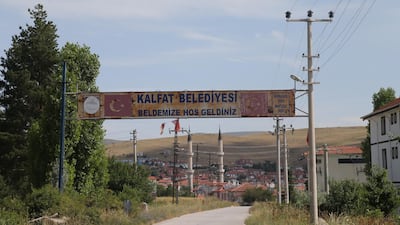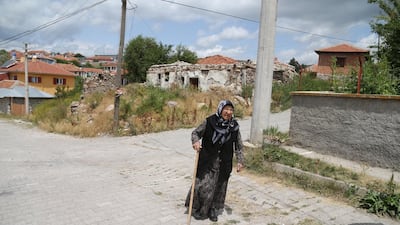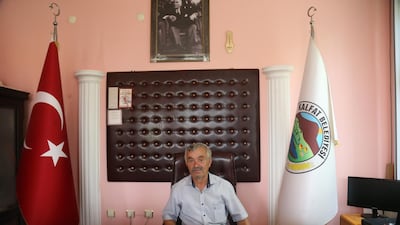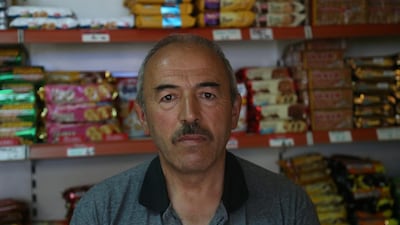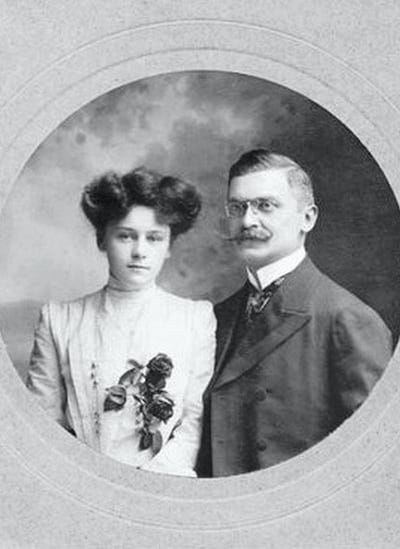Latest: Boris Johnson resigns: Search begins for new UK prime minister
Sitting high among the hills of the Anatolian plateau, the small Turkish village of Kalfat is a far cry from Westminster’s corridors of power.
This sleepy community, however, lays a claim as strong as any to be the ancestral home of UK politician Boris Johnson.
Residents of the village, which is about 110 kilometres north of the capital Ankara, have followed the career of Mr Johnson since he became mayor of London in 2008.
“He’s a great source of pride for us,” said Satilmis Karatekin, 65, who claims to be a distant cousin of the politician. “For us, he is a Turk from Kalfat and we will always consider him one of us.”
Villagers say their home was, until relatively recently, populated by a number of people who shared Mr Johnson's trademark shock of blond hair, but the trait died out with the elderly population or as the village's younger members left for Ankara or Istanbul.
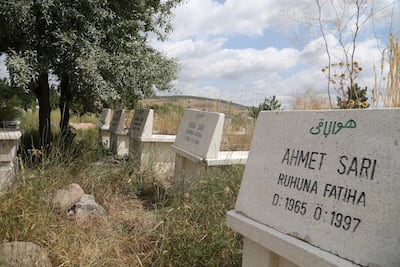
Their testimony is borne out on the tombstones in the cemetery lying on the edge of the village, where many of the family names bear the root word "sari", Turkish for yellow or blonde.
The graves of Mr Johnson’s own ancestors – known locally as Sarioglangiller, or the sons of the blonde ones, are just a pile of wind-weathered stones lying amid knee-high weeds.
"There used to be many people with blonde hair but they either died or moved away," Mr Karatekin said. "I used to have blond hair but it's all either gone or turned grey. Now nobody in the village is left with this kind of hair."
Mr Johnson’s Turkish roots became widely known shortly after becoming mayor when a TV documentary traced his family background. At the time, most assumed his European ancestors would account for his family’s fair hair but it seems his Turkish heritage could be the source.
Although many associate Turks with a typical Mediterranean or Middle Eastern look, their appearances are diverse, partly because of the span of the Ottoman Empire. As it shrank, Muslims from lands in the Balkans and around the Black Sea moved to Anatolia. Even earlier, Byzantine emperors were known to employ Viking bodyguards.
However, claims that Mr Johnson’s hair comes from a Circassian slave girl, from what is now southern Russia – who was supposedly bought as a concubine and then became the wife of his great-great-grandfather – are derided by locals in Kalfat.
“We’ve never heard of such a thing,” said Bayram Tavukcu, who serves as mukhtar, or village leader. “It sounds far-fetched and wouldn’t explain why there were so many people with blonde hair until recently.”
Four generations ago, Mr Johnson’s ancestor, Haci Ahmet Riza Efendi, was a successful merchant who moved from Kalfat to Istanbul in the late 1800s. His son Ali Kemal – Mr Johnson’s great-grandfather – was born in the Ottoman capital.
The family retained links to their home, the ruins of which can still be found in Kalfat, but Ali Kemal went on to develop international ties as a journalist, diplomat and, briefly, a minister in the government of the empire's last sultan.
He was educated in Europe, where he met Winifred Brun, an Anglo-Swiss woman he married in London in 1903. Six years later, Mr Johnson’s grandfather Osman Wilfred Kemal was born, but Brun died shortly afterwards.
Leaving his son and daughter to be raised by his mother-in-law, Margaret Johnson, in England, Ali Kemal returned to Turkey before the start of the First World War.
He later served as a minister to Mehmed VI, but as Turkey fought for its independence, Ali Kemal, who backed a British protectorate, fell foul of nationalist sentiment. While travelling to Ankara to stand trial in 1922, he was dragged off a train and killed by a mob.
His son, who had adopted his grandmother’s surname to become Wilfred Johnson, was brought up in south-west England, where Mr Johnson’s father Stanley was born in 1940.
Despite Ali Kemal’s reputation as a traitor to the cause that created modern Turkey and Mr Johnson’s own scaremongering about potential Turkish migration to the UK during the Brexit campaign, the former London mayor is held in high regard in Kalfat.
Mr Karatekin, Mr Johnson’s distant relative, said he was disappointed when he did not come to Kalfat during a trip to Turkey as foreign secretary in 2016. “We would have welcomed him and shown him typical Turkish hospitality,” he said.
“Today we would do the same because he is family and someone from this village who has achieved great things. For someone from this village to become prime minister of England would make us even prouder.”

Omer Karaagac, a former district mayor, met Mr Johnson’s father when he visited 11 years ago. “We would love his son to visit, no matter what. Politicians sometimes say things for the wrong reasons but that does not change how we feel about Boris.”
However, 92-year-old Guler Onay said she had never heard of the village's best-known son. "I don't know of such a thing but if he's such a great man, maybe he could help us here," she said, gesturing at one of the many ruined houses that lie in the village, which has had its population halved to about 2,000 in the past 50 years.
Shopkeeper Musa Sekerci, 57, said he feared for UK-Turkey relations if Mr Johnson were to become prime minister. “He seems like a man who does not like people not from England, despite his background,” he said. “He has already said bad things about Turks and our president, so I think it would be bad for Turkey.”
Prior to the Brexit campaign, during which Mr Johnson raised the spectre of millions of Turks heading to the UK if their country joined the European Union, he wrote an unflattering poem about then prime minister, Recep Tayyip Erdogan.
However, the village’s politics would seem to suit Mr Johnson as it is – like most of rural Anatolia – a stronghold of right-wing parties.
“Maybe when he’s finished leading England, he can come and be our mayor,” said Ibrahim Aksu, 60. “We’ll even help rebuild his family’s old home.”
